Iran Is Common Enemy Of Israel And Ukraine – Zelenskyy
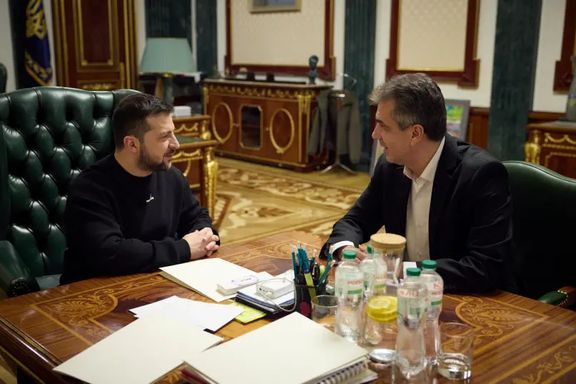
Ukrainian President Volodymyr Zelenskyy has told Israeli Foreign Minister Eli Cohen that the Islamic Republic is their “common enemy.”

Ukrainian President Volodymyr Zelenskyy has told Israeli Foreign Minister Eli Cohen that the Islamic Republic is their “common enemy.”
During their meeting in Kyiv on Thursday, the two also spoke about deepening cooperation against Iran in the international arena, Israeli media cited Cohen as saying. The meeting took place during Cohen’s solidarity visit to Ukraine, the first high-level visit of an Israeli official to the war-torn country since Russia’s invasion last year.
“The evil face of Iran is being revealed in Ukraine,” Cohen told Zelenskyy.
Cohen made it clear to the Ukrainian president that Israel does not plan to provide it with defensive weapons, the kind that could protect Ukrainian citizens against armed Iranian drones Russia has launched against them. However, Israel intends to fulfill the previous government’s promise to provide Ukraine with an early warning alert system, something that former Defense Minister Benny Gantz had already told Ukraine would happen last October.
Cohen said he hopes to send the system within three months, also promising to secure a funding guarantee worth $200 million for healthcare and infrastructure projects.
Iran’s Islamic government has supplied hundreds of drones to Russia since mid-2022 that have been used during missile attacks to swarm Ukrainian air defenses. Sources in Tehran told the Guardian this week that the Islamic Republic used boats and a state-owned airline to smuggle new types of advanced long-range armed drones to Russia. Unlike Shahed 131 and 136 drones, which have been broadly used by Moscow in kamikaze attacks against Ukrainian infrastructure, the higher-flying drones are able to deliver bombs and return to base.
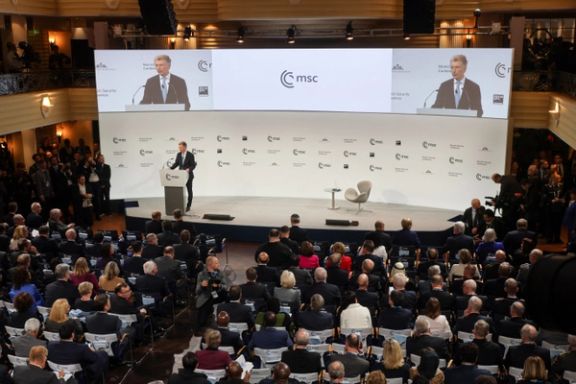
Israel's Defense Minister Yoav Gallant said on Friday that "all possible means" were on the table to prevent Iran from building a nuclear weapon.
He also called on the international community to take action to stop Tehran's proliferation of advanced weapons.
"Iran is currently holding discussions to sell advanced weapons, including UAVs and PGMs, to no less than 50 different countries," he said, referring to combat drones and precision-guided munitions.
Iran has been supplying kamikaze drones to Russia that are used to target Ukraine’s infrastructure. It has also supplied Houthis in Yemen with drone and missile technology, extensively used against Saudi Arabia. Iranian proxy forces such the Hezbollah and Shiite militias in Iraq are also known to have Iranian drones and rockets.
"When we speak of preventing Iran from gaining a nuclear weapon, we must keep all the possible means – I repeat, all possible means on the table," he said, speaking on the sidelines of the Munich Security Conference attended by officials from Bahrain and the United Arab Emirates.
The US and the Arab states comprising the Gulf Cooperation Council (GCC) also held a meeting of the Working Group on Iran this week during the visit of an American delegation to Saudi Arabia and issued a joint statement on Thursday, February 16.
“The United States and GCC member states condemned Iran’s continued destabilizing policies, including its support for terrorism and the use of advanced missiles, cyber weapons, and Unmanned Aircraft Systems (UAS) and their proliferation in the region and around the world,” the statement said.
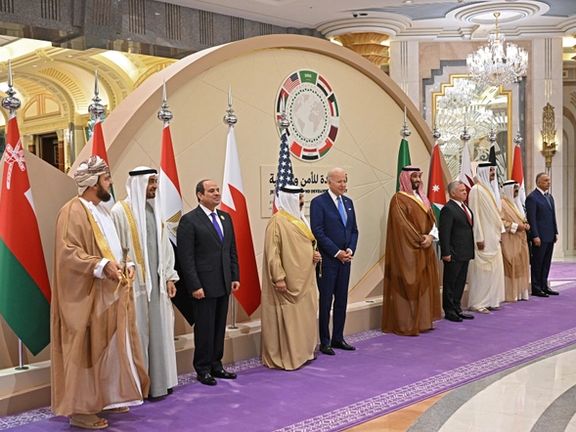
Iran has dismissed a joint statement by the United States and the Gulf Cooperation Council Arab states this week accusing Tehran of malign regional activities.
Spokesman of Iran's foreign ministry, Nasser Kanaani on Friday claimed that the statement is nothing more than a US attempt “to sow discord among regional countries.”
The US and the GCC held a meeting of the Working Group on Iran this week during the visit of an American delegation to Saudi Arabia and issued the joint statement on Thursday, February 16.
“The United States and GCC member states condemned Iran’s continued destabilizing policies, including its support for terrorism and the use of advanced missiles, cyber weapons, and Unmanned Aircraft Systems (UAS) and their proliferation in the region and around the world,” the statement said.
Iran’s Tasnim news website affiliated with the Revolutionary Guard quoted Kanaani who dismissed the joint statement as “repetitive and boring.” He went on to accuse Washington of selling billions of dollars of arms to regional countries and “continuing to support Takfiri terrorism.” Tehran has long been accusing Washington of having created and nurtured extremist Sunni terror groups, such as Al Qaeda.
The Islamic Republic finds itself under tremendous economic and political pressure since September when long-running nuclear talks with the West hit a deadlock, and at the same time nationwide popular protests erupted against the regime.
A third factor contributing to Tehran’s isolation is its supply of killer drones to Russia that have been used against Ukraine’s infrastructure. That has had a major impact on Europe’s attitude toward Iran, leading to sanctions and a discussion of listing the Revolutionary Guard as a terrorist organization.
The Iranian currency has fallen by more than 50 percent in the past six months, fueling more inflation amid strong public dissatisfaction and recurring protests.
Opponents of the regime came out into the streets again on Thursday in many cities, chanting slogans against Supreme Leader Ali Khamenei and the clerical government.
The US and the Persian Gulf Arab states voiced concern over Iran’s weapons proliferation after their meeting. “Iran and its proxies and partners have used these Iranian weapons in attacks striking civilians, critical infrastructure, and international maritime shipping.”
But the statement also expressed deep concern over Iran’s expanding nuclear program. “The United States and GCC member states further underlined that Iran’s nuclear advances as documented by the IAEA, chief among them the production of highly enriched uranium (HEU), have no credible civilian purpose and are gravely exacerbating regional and global tensions.”
Since September, the Biden administration has changed its tone toward the nuclear talks, repeatedly saying that it is no longer focused on reviving the 2015 accord, the JCPOA. Now, both the United States and its European allies have more demands than simply returning to the Obama-era deal. They are saying that Tehran should end its deadly repression against protesters, free all political prisoners, end its military role in Ukraine and its malign activities in the Middle East.
The February 16 joint statement appears to be a US recognition of the deep concerns the Gulf Cooperation Council members have long expressed about Iran’s policies and behavior, and can be a signal of non-nuclear issues becoming a prominent part of any agreement with the Islamic Republic.
“The United States and GCC member states expressed their commitment to expanding defense cooperation and interoperability to enhance their capabilities to constrain Iran’s ability to conduct destabilizing activities and deter it from conducting future acts of aggression,” the statement said.
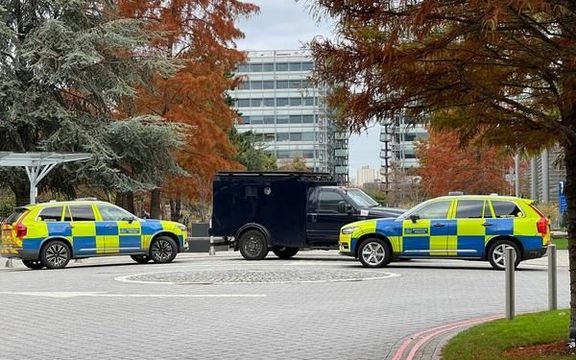
Britain's counter-terrorism police chief said on Thursday his officers are increasingly dealing with threats from hostile states such as Russia, China and Iran.
The announcement signaled a shift from focusing on Islamic extremism to dangers posed by adversarial states. The September 11, 2001, attacks on the United States and deadly incidents in Britain made tackling Islamist plots the priority for counter-terrorism police, with resources focused on the threat from home-grown and foreign-based militants.
Matt Jukes, the head of counter-terrorism at London's Metropolitan Police, said there has been a shift in emphasis as foreign states try to corrupt or intimidate people and are involved in murder and kidnap plots in Britain.
"The requirement for us to play a law enforcement part in countering the threats from hostile states is unprecedented," Jukes told reporters at New Scotland Yard, the Metropolitan Police's headquarters.
The police in London arrested a man last Saturday in the vicinity of Iran International’s headquarters at Chiswick Park and indicted him according to section 58 (1) (b) of the Terrorism Act 2000. He appeared to be surveying the office building where the network has its headquarters.
The suspect, Magomed-Husejn Dovtaev (Mohammad-Hussein Dovtaev), 30, an Austrian national, appeared at Westminster Magistrates’ Court on Tuesday and pleaded not guilty. The suspect's name in Russian spelling signals that he is originally from one of the former Soviet republics, more likely from a Muslim-majority country.
The incident came after the Metropolitan police warned the network in November of serious threats originating from Iran against its journalists and provided extra protection.
Iran has long engaged in terror plots against Iranian dissidents and journalists abroad, conducting intimidation, assassination and kidnapping operations.
Investigations involving state threats have quadrupled in the last the last two years and these cases now account for a fifth of counter terrorism officers' times, he said.
Iran has made at least 15 attempts to kidnap or even kill British nationals or individuals based in the United Kingdom regarded by Tehran as a threat, Jukes said.
Last year, British Foreign Secretary James Cleverly summoned Tehran's most senior diplomat over alleged threats by Iranian security forces to journalists in Britain.
The Iranian embassy in London did not immediately respond to a request for comment by Reuters.
Jukes said police were making inquiries after claims China last year was operating "police stations" in major cities around the world, including New York. China has denied the allegations.
Britain blamed Russia for a 2018 nerve agent attack targeting former Russian double agent Sergei Skripal and his daughter Yulia in Salisbury, southern England, a charge Moscow has denied. And this week a security guard at the British embassy in Berlin was in a London court accused of spying for Russia.
The Metropolitan Police's War Crimes Team, which is a unit within its counter-terrorism command, is also dealing with more than 100 referrals from Ukrainian refugees in Britain related to the war with Russia, he said.
Despite the shift in focus, counter-terrorism police's biggest job is still tackling terrorism. Jukes said police disrupted eight late-stage terror plots last year and in some cases they have been investigating children as young as 13.

The Biden administration says it is concerned about the support countries like Iran and North Korea provide to Russia to supply embargoed goods like microchips.
Thea Candler, the Assistant Secretary of Commerce for Export Administration made the remarks in Tokyo on Thursday, adding that “Russia has turned to other countries, if you can imagine the partners of Iran and North Korea, to fill certain gaps in their purchases that have been created by the fact that our products are leaving the Russian market.”
“We know that Russia is using Iranian drones in Ukraine to kill civilians,” stressed Candler.
The G7 countries are discussing the imposition of sanctions on Iranian, Chinese and North Korean companies involved in the transfer of technology and chips to Russia. The G7 wants to coordinate a package of sanctions by February 24.
US media had previously reported that some American microcircuits were used in the structure of Iranian drones that were delivered to Russia.
Russia had previously said it would increase microchip production but reports in late 2022 indicated it had failed to achieve such goal.
Washington also insists that no US-made chips should be used in devices such as Chinese-made computers and smartphones.
Last month, China initiated a dispute against the US at the World Trade Organization over Washington’s sweeping semiconductor export curbs.
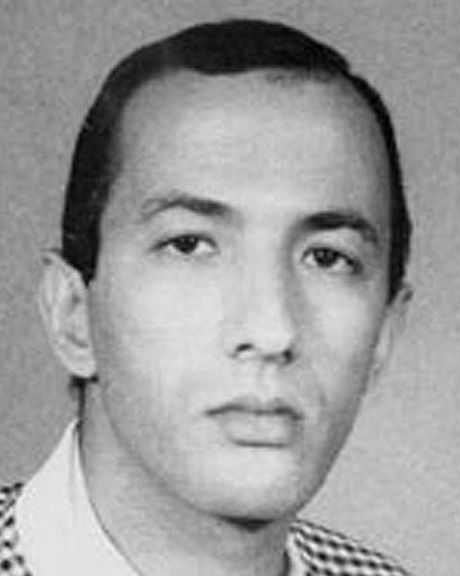
Iran denied US claims that Al Qaeda's leader Seif al-Adel is based in the country, foreign minister Hossein Amir-Abdollahian wrote on Twitter on Thursday.
Washington on Wednesday aligned itself with a UN statement placing Adel in Iran.
"I advise the officials of the White House to stop the failed game of Iran-phobia, making news about the leader of Al-Qaeda and linking him to Iran is laughable," Amir-Abdollahian wrote.
Seif al-Adel, a former Egyptian special forces officer who is a high-ranking member of al Qaeda with a $10 million US bounty on his head, is now the "uncontested" leader of the militant group, according to a new U.N. report on the organization.
The US State Department said Wednesday it aligned with UN assessments that Seif al-Adel is based in Iran.
Adel was indicted and charged in November 1998 by a US federal grand jury for his role in the bomb attacks on the US embassies in Tanzania and Kenya that killed 224 civilians and wounded more than 5,000 others.
Following the African bombings, the former Egyptian army lieutenant colonel moved to southeastern Iran, where he lived under the protection of the country's Islamic Revolutionary Guard Corp, according to the US State Department's Rewards for Justice program.
He and other Al Qaeda leaders were placed under house arrest in April 2003 by Iran, which released him and four others in exchange for an Iranian diplomat who was kidnapped in Yemen.
Report by Reuters